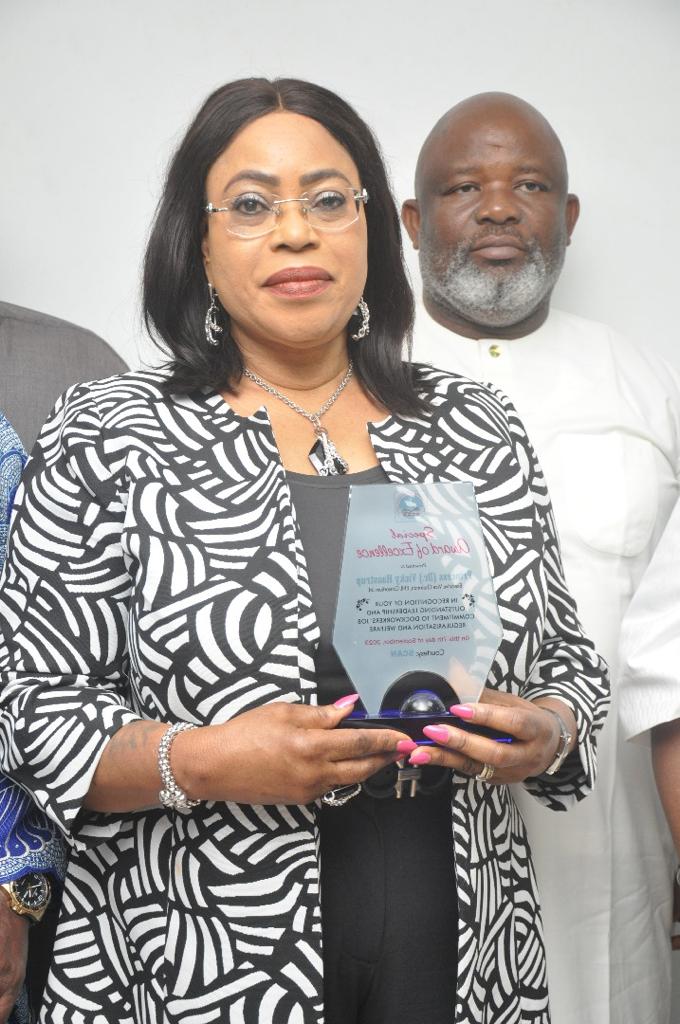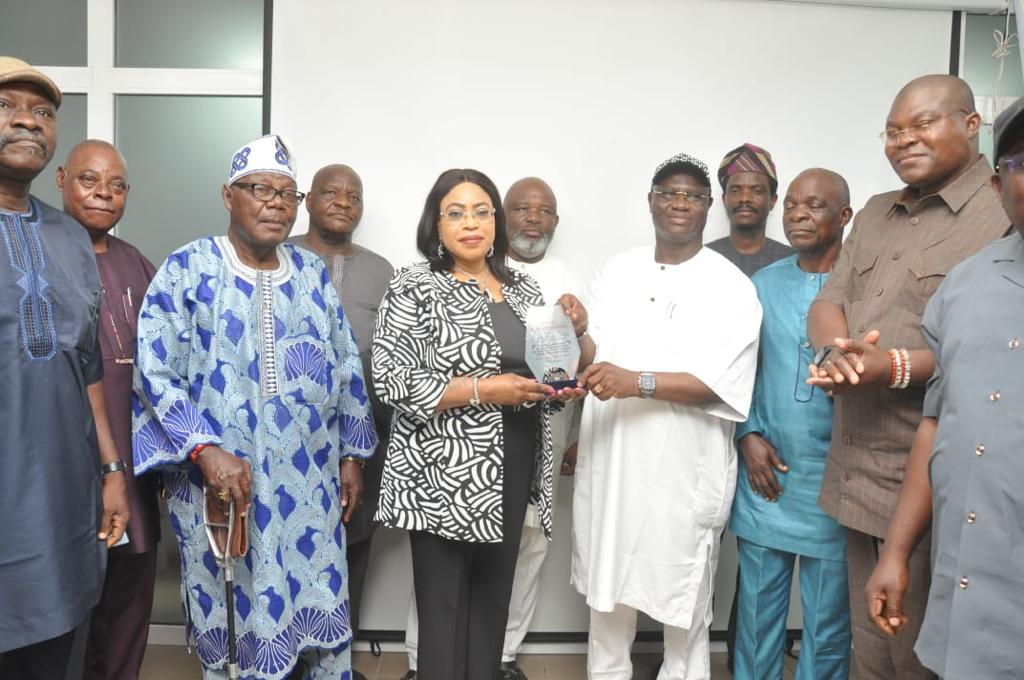
The Chairman, Seaport Terminal Operators Association of Nigeria (STOAN), Princess Vicky Haastrup was on Thursday honoured by the Maritime Workers Union of Nigeria (MWUN) and the Shipping Correspondents Association of Nigeria (SCAN) for the role she played in ensuring the success of Nigeria’s port reform programme and improving the welfare of dockworkers.
During the maiden Dockworkers Day celebration organised by SCAN in Lagos, Haastrup was presented with a special recognition award for supporting the cause of establishing conditions of service for dockworkers.
The President-General of MWUN, Comrade Adewale Adeyanju, supported by other labour leaders, presented the special recognition award to Haastrup.
He said the STOAN Chairman was able to overcome initial challenges at the port to become a dependable ally of the union.
He said Haastrup, who is also the Executive Vice Chairman/CEO of ENL Consortium, is not just the largest employer of dock labour in the country but also the Mama Dockworkers.
The MWUN President-General also commended terminal operators for partnering with the union to better the lives of dockworkers, who he said were treated as slaves before the port concession exercise.
He challenged the Nigerian Shippers’ Council (NSC) to support the clamour for upward review of terminal charges at the port to enable operators further improve the welfare of dockworkers.
Also speaking at the event, the Executive Secretary/CEO of NSC, Hon. Emmanuel Jime, commended SCAN for organising the Dockworkers Day celebration, promising full support to the association.
Jime also commended terminal operators for paying living wages to dockworkers.
In her address, Princess Haastrup said concessionaires at the nation’s seaports have been able to increase the salaries and wages of dockworkers by more than 2,000 per cent over the past 17 years.

“You all are witnesses to the situation at the ports and the poor working condition of dockworkers before the 2006 port concession exercise. Before the concession, dockworkers were poorly paid. They did not have conditions of service. Indeed they did not have identifiable employers. Their safety, in the course of performing their duties, was not taken to heart. They were exploited, dehumanised and underpaid.
“But all of that has changed, thanks to the bold move of the Federal Government to reform and concession the ports in 2006. As you all know, the port concession transferred cargo-handling operations from NPA to professional private terminal operators, who won lease agreements ranging from 15 to 25 years. NPA remained the landlord, technical regulator and provider of marine services.
“Seventeen years into the port concession exercise, there is a general consensus that the exercise has fully delivered on its promises. The landlord model of port concession adopted by the Federal Government has freed the government of the financial burden required to develop and operate the terminals. This burden has been transferred to the private terminal operators also known as concessionaires.
“In addition to not spending money to acquire cargo handling equipment and other associated terminal operating costs, the Federal Government now realises much more revenue from the ports.
“In addition to modernising the port, we have collectively worked together to give a new lease of life to our dockworkers. Every other year, members of the Seaport Terminal Operators Association of Nigeria (STOAN) and the Maritime Workers Union of Nigeria under the supervision of NIMASA sign new Collective Bargaining Agreements (CBA) midwifed by the National Joint Industrial Council (NJIC) to further enhance the welfare of dockworkers in the country,” the STOAN Chairman said.
She said the CBA ensures fair treatment of dockworkers, payment of living wages and institutionalisation of retirement benefits to them.
“In essence, unlike what obtained before port concession, our dockworkers now have conditions of service.
Today, the average take-home pay of a dockworker has increased by more than 2,000 per cent over what it was in 2006. The Collective Bargaining Agreement between the Union and Terminal Operators has also ensured industrial harmony at the port.
“We recognise the importance of our dockworkers. They are professionals and essential workers. They are vital and crucial to port operation. Indeed without dockworkers, we cannot talk of effective port operation.
The story of the success of port concession cannot be written without copious mention of the role of dockworkers,” Haastrup said, even as she reiterated the commitment of terminal operators to the welfare of dockworkers “despite the economic situation in the country,” she said.